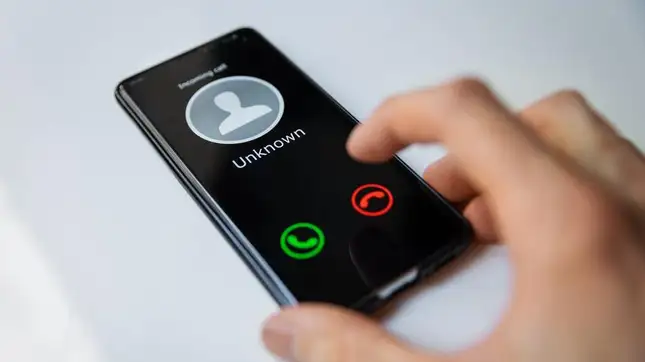Warning: 0120005441, 8008087000, 0120985480, 5031551046, 8009190347, 120999443, 222117258, 120252000, 0120-925-527, 120925318, 120998151, 570005040, 0120988315, 0120991013, 0120988315, 0120989393, 0120633439, 08005003225, 332659022, 120170001, 5088812828, 669104115, 5031599953, 120996085, 120979555, 8002229417, 922615616, 364358073, 8001009127, 5030336342, 120526888, 120917245, 364358073, 0120-252-000, 120868014, 120013175, 671669891, 120397663, 0570 005 040, 0120 247 218, 8007775926, 120426288, 050 3155 1046, 5053704031, 5031213937, 120954484, 0120 999 443, 120952650, 06 6910 4115, 120961600 in Japan.
In this digital age, phone scams have become an unfortunate reality. The numbers 0120005441, 0120991013, 8008087000, 5031551046, 8009190347, 0120985480, and 120999443 in Japan have raised concerns due to their involvement in potential fraudulent activities. It’s crucial to be aware of these numbers to protect yourself from falling victim to scams. In this article, we’ll explore the red flags, risks, and preventive measures associated with these phone calls.
Beware of Phone Calls from 0120005441, 0120991013, 8008087000, 5031551046, 8009190347, 0120985480, and 120999443 in Japan
Phone calls from these numbers, specifically 0120005441, 0120991013, 8008087000, 5031551046, 8009190347, 0120985480, and 120999443, have been reported to be associated with various scams, including identity theft, financial fraud, and phishing attempts. These callers often employ tactics that seem convincing, making it imperative to exercise caution.
Signs of Suspicion
If you receive a call from any of these numbers, be cautious if:
- The caller insists on immediate action, creating a sense of urgency.
- The call asks for personal information such as your Social Security number, bank details, or passwords.
- The caller claims you’ve won a prize or a lottery you don’t remember participating in.
- The caller threatens legal action or claims to represent a government agency.
Possible Scenarios
- Financial Scams: These callers might pose as bank representatives or credit card companies, attempting to gather sensitive financial information. Never provide such details over the phone.
- Tech Support Scams: The caller might claim to be from a tech support company and ask for remote access to your computer. Hang up if someone asks for personal data or access to your devices.
- Impersonation: Scammers could impersonate government officials, demanding immediate payment for fictitious fees or taxes. Always verify such claims independently before taking any action.
How to Protect Yourself
Protecting yourself from these potential scams requires vigilance and awareness. Here are some steps you can take:
1. Verify the Caller
If you receive a call from any of these numbers, don’t immediately trust the caller’s identity. Ask for their name, company, and a callback number. Research the company and contact them using official channels to verify the call’s legitimacy.
2. Don’t Share Personal Information
Never share sensitive information over the phone. Legitimate organizations won’t ask for your Social Security number, passwords, or credit card details over a call.
3. Hang Up and Call Back
If you’re suspicious, hang up the call and dial the official number of the organization. This ensures you’re speaking to a genuine representative.
4. Use Call Blocking
Modern smartphones have call-blocking features. Use them to prevent future calls from suspicious numbers.
5. Educate Yourself
Stay informed about common phone scams and tactics used by scammers. Knowledge is your best defense.
FAQs About Phone Scams and Safety
1. How can I report a suspicious call?
If you receive a suspicious call from any of these numbers, you can report it to local law enforcement or the appropriate government agency responsible for handling such cases.
2. What should I do if I’ve already provided information to a scam caller?
If you’ve fallen victim to a scam and provided personal information, contact your bank, credit card companies, and other relevant institutions immediately to secure your accounts and prevent unauthorized transactions.
3. Can scammers spoof these numbers?
Yes, scammers can manipulate caller ID information to make it appear as though they’re calling from a different number. Always rely on other verification methods when dealing with sensitive information.
4. Should I answer calls from unknown numbers?
Exercise caution when answering calls from unknown numbers. If it’s an important call, the caller will likely leave a voicemail.
5. How do scammers use the information they gather?
Scammers can use your personal information for identity theft, financial fraud, or even selling your data on the dark web. It’s crucial to protect your information.
6. Is it safe to call back these numbers?
It’s not recommended to call back numbers associated with suspicious activity. Instead, verify the caller’s identity through official channels.
Conclusion:
Phone scams are a real threat in today’s interconnected world. Being aware of the numbers 0120005441, 0120991013, 8008087000, 5031551046, 8009190347, 0120985480, and 120999443 in Japan that have been linked to potential scams empowers you to take proactive measures. Remember to stay cautious, protect your personal information, and report any suspicious activity to ensure your safety.





Average Rating